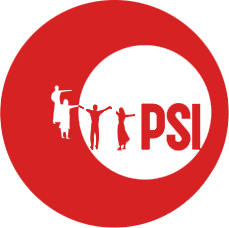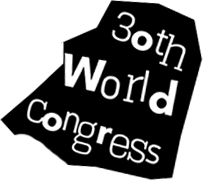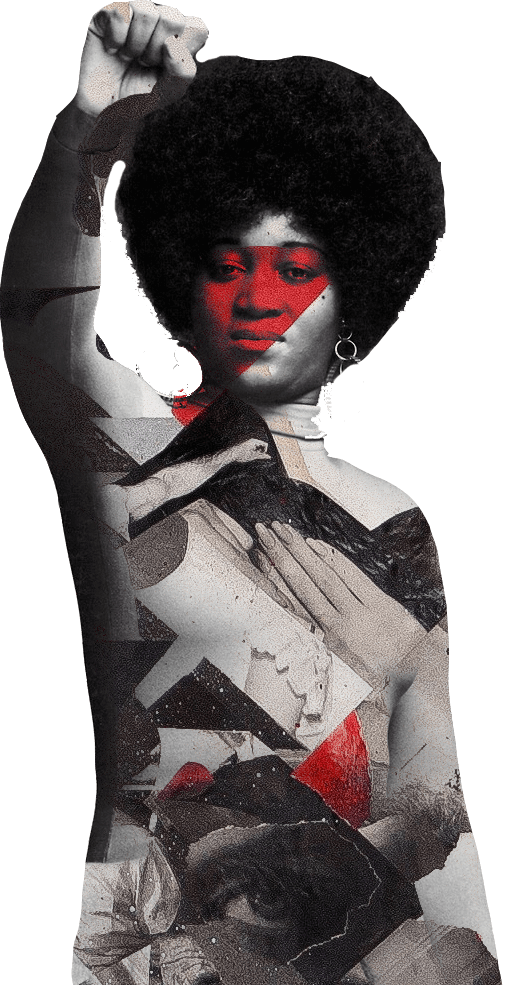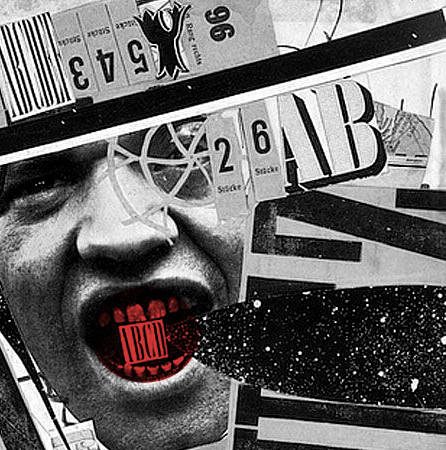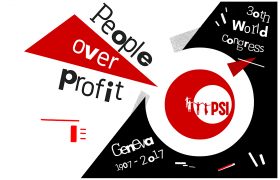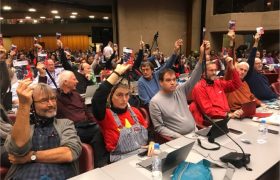Every five years, PSI holds its World Congress where discussion and decisions strengthen our activities and organising ability.
The PSI 2018-22 Programme of Action (PoA), titled People Over Profit, will guide our global action, in all areas of PSI policy and activity, over a five-year period. The PoA has been kept as short as possible. Once it has been passed by Congress, a short summary will be produced for affiliates to use to explain PSI work and priorities to staff and members, with a focus on how international work affects their everyday lives.

Summary of Key Points
The proposed PoA builds on the current political priorities of PSI.
Section 1, Introduction, outlines the international threats and opportunities that PSI and its members face. It reminds us that our struggle cannot be separated from the broader struggles of all workers, and the struggles for democracy, human rights and justice for all.It then goes on to outline the threats of corporate power, rising inequality, increased racism and xenophobia and the unique place that public service workers and unions occupy in the current global turmoil. It argues that we must be bold in our vision and we must be prepared to lead.
Section 2, Building the Power to Create the World We Want, outlines the importance of building our power to create change. It identifies organising workers, growing our unions and projecting our power as crucial to our success. It outlines how PSI’s power relies critically on the size, unity and activity of our affiliates. At the request of EB-149 (November 2016), all sections of the PoA contain actions for PSI affiliates. Section 2 goes on to argue for internal democracy and workers’ participation, ensuring all workers are brought into the union movement, and for building broad alliances with users of public services, private sector unions and other allies. It makes the case for clear analysis, bold demands, workers’ education and effective communication and lobbying.
Section 3, Respect and Dignity for All, outlines our commitment to respect and dignity for all. It makes the case for acknowledging historical injustice, ending all discrimination, taking specific action to remedy injustice and the importance of shifting power in society. It includes new sections on migrants and refugees, racism and xenophobia, LGBTQI workers, indigenous peoples and disabled workers. It acknowledges PSI Women’s Committee’s lead role for gender mainstreaming, but that men must also play a critically important role. It commits to expanding the support for young workers in PSI decision-making and their central role in PSI actions.
Section 4, A Just Global Economy, outlines PSI’s vision for an alternative and just global economy. It articulates the challenges of rising inequality, changes in the labour market, the scandalous rise in corporate power and the role of global financial institutions in maintaining neoliberal policies and practices. This section deals with tax justice, debt, trade, corruption, sustainable development, climate change, pensions and digitalisation.
Section 5, Trade Union and Labour Rights, outlines the central role PSI plays in defending the trade union rights of its affiliates against unprecedented attacks, particularly on collective bargaining and the right to strike in public services. It outlines how we will help defend and extend these rights to ensure that workers can exercise their human rights and improve their wages and conditions.
Section 6, Fighting Privatisation, restates PSI’s commitment to quality public services and their role in assisting the most vulnerable and needy in society. It outlines the human rights, social justice and economic rationale for quality public services, the threats posed by privatisation and how we will meet them.
Section 7, Making Sectors Stronger, details the important role of sectors in PSI’s struggle. It outlines how equalities, cross-cutting issues, privatisation and trade union rights work will be incorporated and driven through sectoral work. It sets out how we will strengthen our sector networks and organise to defend our affiliates and their members. It lists specific action for each of PSI’s five sectors.
The Congress Theme
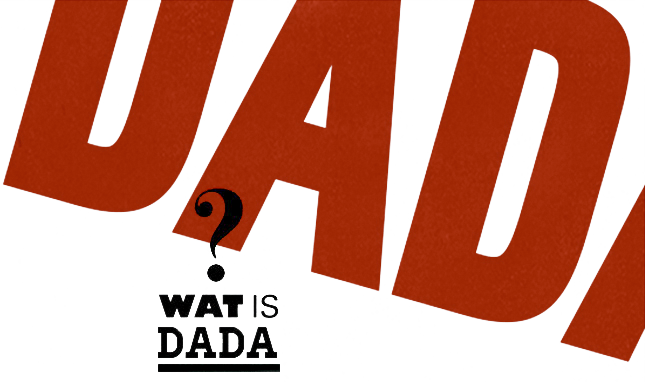
In keeping with PSI’s tradition of paying homage to the Congress host country, we had to find a special Swiss theme which could also highlight PSI’s historical achievement:our 110th anniversary and 30th Congress.
And so we will bring together two thematic elements which are contemporary to PSI: Dadaism, a Swiss-based art movement which just celebrated its centennial; and Constructivism, an artistic political praxis intrinsically linked to the first workers’ revolution – also celebrating 100 years – which praises art as a tool for social change.
In 1916, a group of artists, misfits, political exiles and revolutionaries gathered in Switzerland to create the Dada movement. For the dadaists, the language and imagery of the established political order and ruling classes was, quite simply, complete nonsense.
Dada, as a movement, began in Zürich in 1916 as a reaction to the horrors World War I. Its proponents rejected the “reason”, “logic” and “rationale” of bourgeois capitalist society which had led to the of senseless deaths of millions of people on the battlefield. The dadaists opted for expressions of nonsense, irony, chaos, iconoclasm and absurdity as a way of expressing their opposition. Making use of collage, sound poetry, and cut-up writing, the dadaists vigorously opposed the accepted norms and orthodoxies of their time.
The fact is that a century later, in an age where advertising relentlessly bombards the eye with impossible images, in an age where petulant politicians shout non-truths and nonsense, in an age where long-dead economic ideas are wheeled out and worshipped… in our age Dada’s rejection of orthodoxy remains more relevant than ever.
